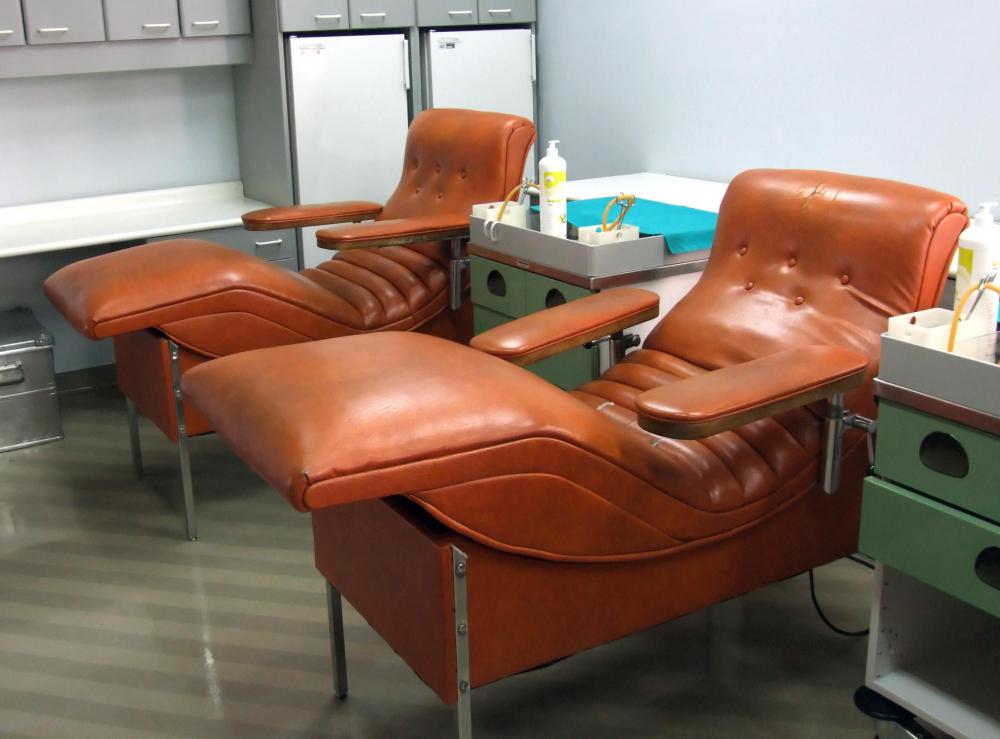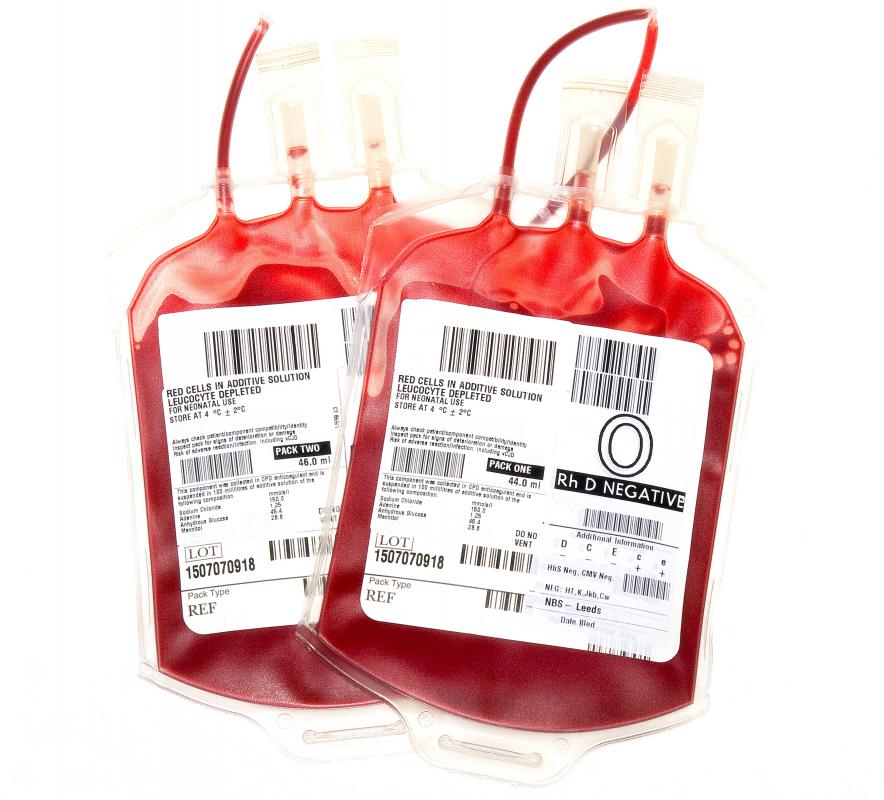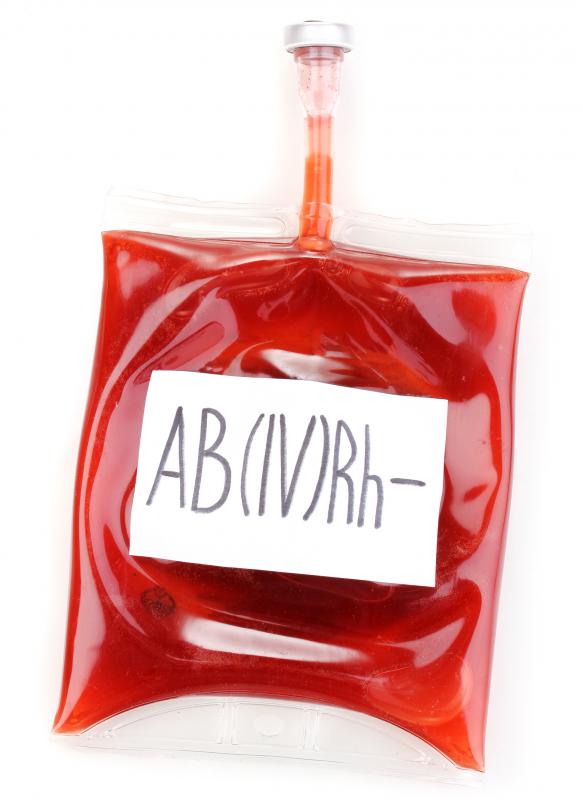At TheHealthBoard, we're committed to delivering accurate, trustworthy information. Our expert-authored content is rigorously fact-checked and sourced from credible authorities. Discover how we uphold the highest standards in providing you with reliable knowledge.
What is a Blood Transfusion?
A blood transfusion is a medical procedure in which blood is taken from one person and given to another person. There are many reasons for performing a blood transfusion. Blood may be required during surgical operations. Accident victims may need blood to replace the blood that has been lost.
Hospitals rely on blood donors for the bulk of their blood supply. If only a small amount of blood has been lost, a salt solution can be used as a replacement. In the case of a large amount of blood loss, a blood transfusion is necessary.

The danger in losing large amounts of blood is that vital oxygen carried through the blood to organs is lost. Anemia suffers may also need regular blood transfusions. People who suffer from anemia cannot make their own blood and require blood from donors.
The most common way to receive a blood transfusion is through a tube inserted into the arm. This tube or cannula is connected to a drip. During the blood transfusion, blood will run from the drip through the tube and into the patient's arm.

People who need frequent transfusions may receive the blood via a tube inserted into the chest. This procedure is called a central line blood transfusion. If frequent transfusions are given via the arm, irritation of the veins my lead to blood clots.
During an operation, it is possible for a patient's own blood to be used for a transfusion. This is called an autologous transfusion. Your own blood will be taken during the operation and then given back to you right away.

You can also give blood in the weeks before you have an operation if you are well enough. Many people choose this option if it is available due to fear of an infection from donated blood. Although risk of infection is very low, autologous transfusions are useful if the patient has a very rare blood type.
A blood donor and recipient match is very important in a blood transfusion. Before a transfusion, tests for blood compatibility must be conducted. This procedure is called cross matching.
The blood used in transfusions is stored in plastic bags. Each bag usually holds a pint of blood or half a liter. Blood is expensive to store. If surgery must be canceled for any reason, then blood that was meant to be used will be destroyed.
Following a blood transfusion, some complications may occur. Side effects may include headaches and skin rashes. There may also be an increase in the body’s temperature. These symptoms can usually be relieved with medication.
AS FEATURED ON:
AS FEATURED ON:















Discussion Comments
My husband has MDS and requires frequent blood transfusions (52 units per year for 2006 and 2007) with lesser amounts in 2004 and 2005. My question is, how long can someone survive receiving such large quantities of blood? It is hard to have discussions with his doctor as my husband, rightfully so, if afraid of hearing what the doctor would have to say. He is frustrated with his disease and directs his anger at me, his spouse. Is there any available website to discuss MDS with others either having the disease or having a loved one with it?
Post your comments